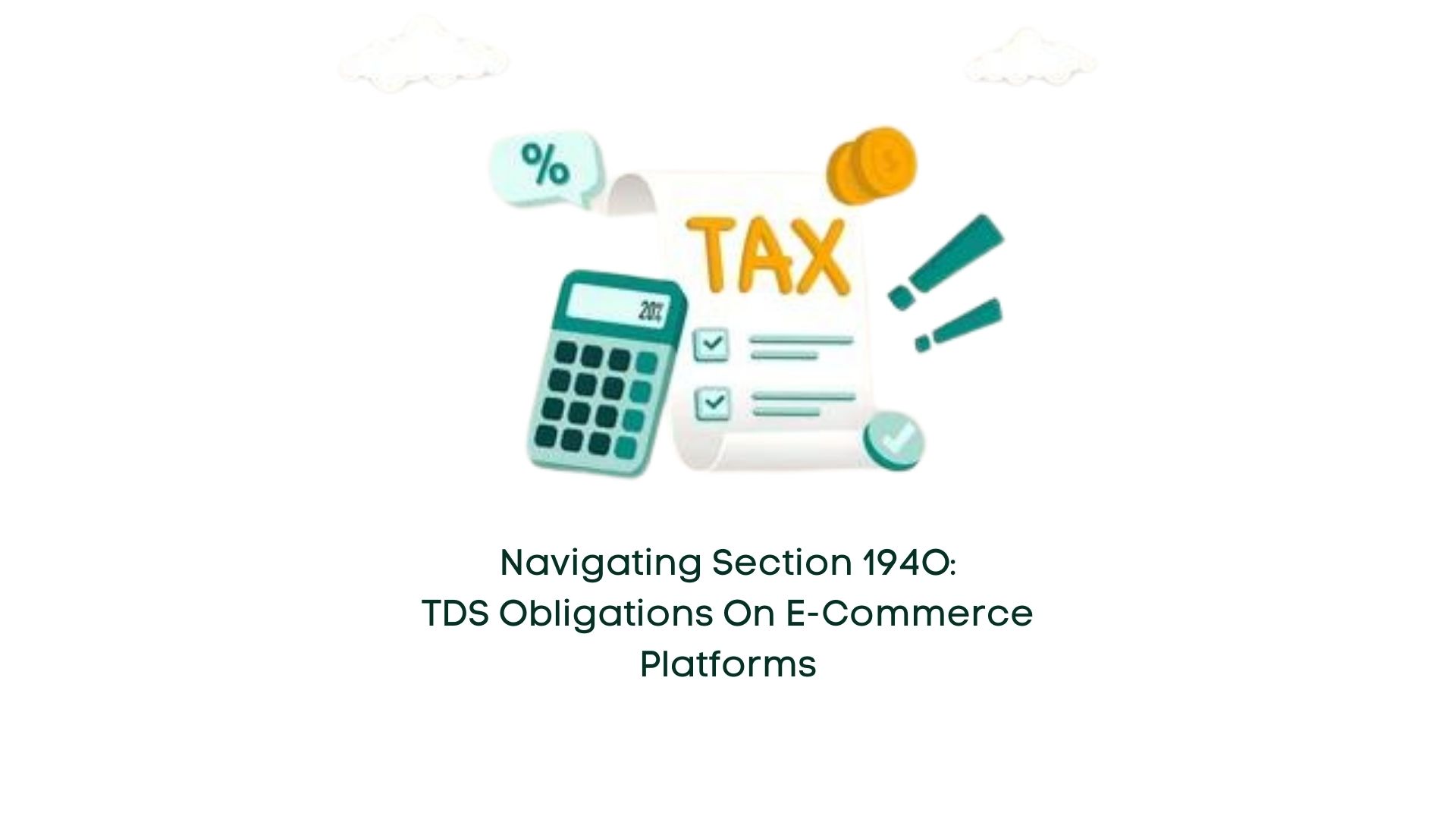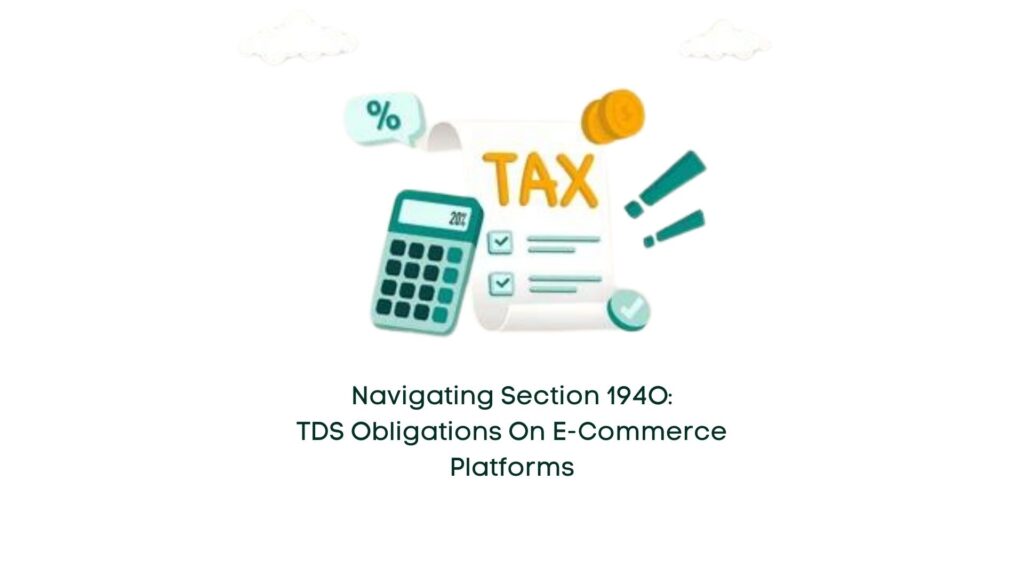
29 Feb Navigating Section 194O: TDS Obligations on E-commerce Platforms

In the fast-paced world of digital commerce, taxation rules are continually evolving to keep pace with technological advancements. Section 194O of the Income Tax Act is one such provision that has significant implications for E-commerce operators and participants. Let’s explore the key aspects of this section and its impact on the digital marketplace.
Understanding TDS Responsibility under Section 194O
The responsibility for deducting Tax Deducted at Source (TDS) under Section 194O falls on E-commerce operators. These operators are tasked with deducting TDS either at the time of crediting the sale amount to the participant’s account or at the time of actual payment, whichever occurs earlier.
Clarifying E-commerce Terminology
To grasp the full scope of Section 194O, it’s essential to understand key terms. Electronic Commerce encompasses the supply of goods or services over digital networks. An E-commerce operator is the entity that owns, operates, or manages the digital platform facilitating these transactions. Additionally, an E-commerce participant refers to a resident individual or entity engaged in selling goods or services through digital platforms.
Finance Act Amendments: Addressing Anomalies
Recent amendments to the Finance Act have clarified ambiguities in the definition of E-commerce operators. Even if payment is directly made by purchasers to participants, the operator is deemed responsible for payment, ensuring seamless enforcement of TDS regulations.
Rate of TDS Deduction
Section 194O mandates a TDS rate of 1% on the gross amount of sales or services. However, a reduced rate of 0.75% was applicable for a specific period. In the absence of PAN/Aadhaar, the rate increases to 5%. E-commerce participants also have reciprocal TDS obligations under different sections of the Income Tax Act.
Exceptions to Section 194O
Exceptions to Section 194O include cases where the gross sales or services by individual or HUF participants do not exceed five lakh rupees in a year, provided they furnish PAN/Aadhaar details. Non-resident participants are exempt from TDS deductions.
Jurisdictional Implications and Equalisation Levy
The jurisdictional implications of Section 194O extend to Non-Resident Selling goods through E-commerce Portals, where Equalisation Levy applies to non-resident operators.
Direct Payment Scenario
Even in cases where participants directly collect payments, E-commerce operators are still required to deduct TDS. However, participants can seek relief through lower deduction or exemption certificates under Section 197 by applying to the respective TDS Assessing Officer.
Conclusion: Embracing Tax Compliance in the Digital Era
Section 194O of the Income Tax Act introduces a paradigm shift in tax compliance within the E-commerce ecosystem. It mandates E-commerce operators to shoulder TDS responsibilities, fostering transparency and accountability in digital transactions. Understanding these provisions is crucial for both operators and participants to navigate the evolving tax landscape effectively.


No Comments